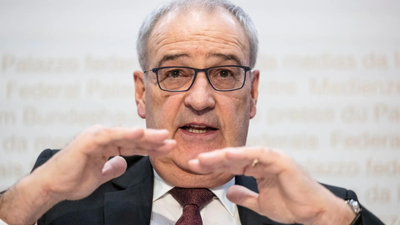Key Takeaways
- US slashes tariffs on Swiss goods from 39% to 15%
- $200 billion Swiss investment plan announced for US through 2028
- Deal expected to create thousands of American jobs across multiple sectors
In a major trade breakthrough, Switzerland has secured a significant reduction in US tariffs alongside announcing a massive $200 billion investment push in the United States. The agreement lowers duties on most Swiss goods from 39% – previously the highest rate imposed on any Western economy – down to 15%, bringing Swiss exporters in line with the European Union’s tariff regime.
Investment and Job Creation Details
Economy Minister Guy Parmelin confirmed the deal was made possible by “new momentum generated by the commitment of the American president” and is expected to take effect within weeks. The White House revealed that companies from Switzerland and Liechtenstein will account for $67 billion of the planned investments in 2026 alone.
According to a White House fact sheet, the investments will create “thousands of well-paying American jobs across all 50 states” in sectors including:
- Pharmaceuticals and medical devices
- Aerospace and advanced manufacturing
- Machinery and construction
- Gold refining and energy infrastructure
Addressing Trade Deficit
The United States, which recorded a goods trade deficit exceeding $38 billion with Switzerland last year, stated the agreement “will put us on a path to eliminate that deficit by 2028.” US Trade Representative Jamieson Greer told CNBC that Switzerland will shift some manufacturing of pharmaceuticals, gold smelting, and railway equipment to the United States.
Resolution of Trade Tensions
The tariff reduction follows months of escalating trade tensions. Washington had initially raised duties on Swiss products to 31% in April as part of its “Liberation Day” tariff actions, then increased them further to 39% on July 31. This prompted sustained diplomatic and corporate efforts from Bern that intensified over recent weeks.
Investment Structure and Existing Commitments
Switzerland, already among the largest foreign investors in the US, indicated the $200 billion plan will be driven by private-sector commitments coordinated under what Parmelin described as “Team Switzerland.” The proportion of new investment remains unclear, as Roche had previously announced a $50 billion US investment during the tariff escalation period.
Sector-Specific Tariff Changes
While several Swiss export categories – including pharmaceuticals, chemicals, gold, and semiconductor-related goods – had been exempted from the highest tariff rates, sectors like industrial machinery, watches, coffee, and cheese remained affected. Parmelin confirmed that some “important” tariffs, including in aviation, will be suspended under the new deal, with negotiations continuing to ease duties in remaining sectors.
Diplomatic Efforts
The agreement culminates an intensive diplomatic campaign featuring Washington delegations led by Swiss President Karin Keller-Sutter and Parmelin. Last week, senior executives from Rolex, gold refiner MKS Pamp, and luxury group Richemont met President Donald Trump at the Oval Office to advocate for Switzerland’s position.




